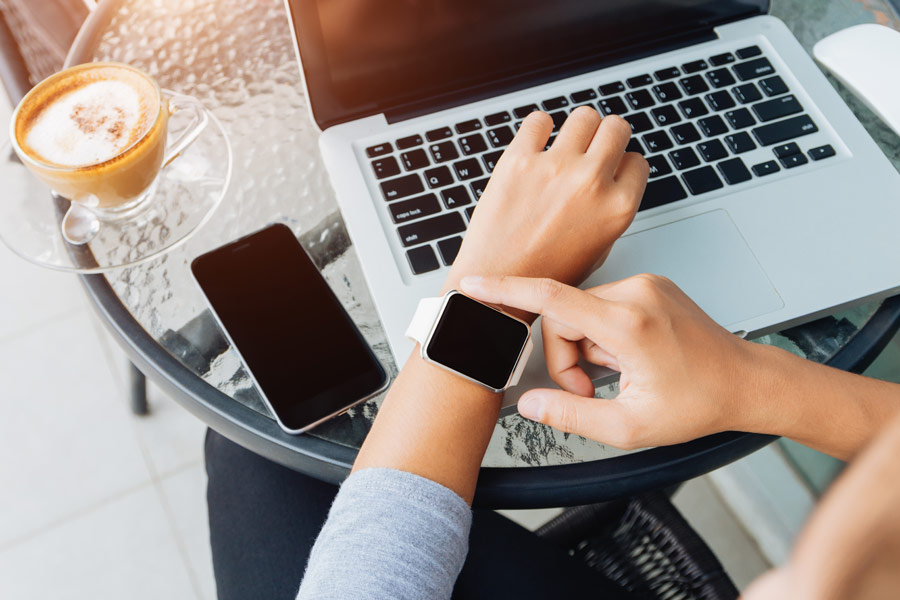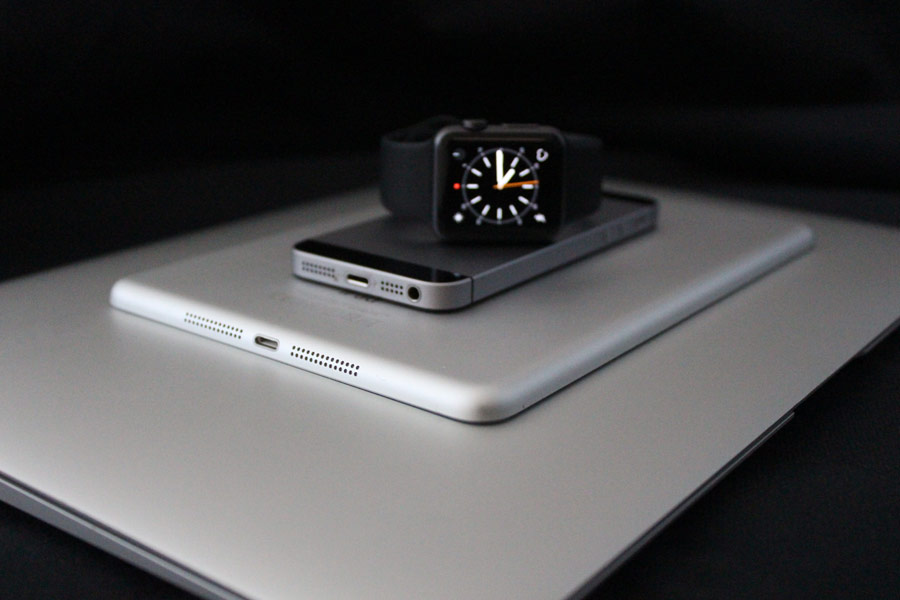I WANT
RELATED LINKS
I WANT
RELATED LINKS
RELATES LINKS
I WANT
RELATES LINKS
Services
Related Links
Use and Management of Cookies
We use cookies and other similar technologies on our website to enhance your browsing experience. For more information, please visit our Cookies Notice.
- Personal Banking
- Stories & Tips
- Success Story
- iPhone-ology: The art of turning a thousand dollar phone into a trillion dollar company
- Personal Banking
- ...
- iPhone-ology: The art of turning a thousand dollar phone into a trillion dollar company
SCB X The Creators
iPhone-ology: The art of turning a thousand dollar phone into a trillion dollar company
iPhone-ology: The art of turning a thousand dollar phone into a trillion dollar company
02-05-2019
A column by Buffettcode
Hi-Light:
- Apple does not sell its iPhone as just a smartphone, but rather as the centerpiece of a complete lifestyle solution. People who buy an iPhone also use iCloud, the App Store and Apple Music in conjunction with other Apple devices like the Apple Watch, Earpods, iPad and various Mac computers.
- Even though Apple's share of the global smartphone market is only 15 to 20%, the company takes 80% of all profits made in this market, including the 30% claimed by the iPhone X alone.
Apple just recently became the first trillion-dollar company in US history. If you are wondering how much is a trillion US dollars are in Thai baht, it's just about 31 trillion of them! This means that Apple's value is greater than the entire Stock Exchange of Thailand. In August of 2018, Apple was 71 times more valuable than Bangkok Hospital (BDMS); 41 times more than 7-11, Makro and CPALL combined; 31 times more than Airports of Thailand (AOT) and had 20 times greater value than Thailand's largest company, PTT.
Apple has persevered through good times and bad, and they have produced many popular and not-too-popular products over the years. Some examples are the Apple II, Macintosh, iMac, iPod, MacBook, iPhone, and iPad. All these products have helped the company to grow and reach the point it is at today.

However, if there is one product most responsible for the company's trillion-dollar success story, then it surely must be the iPhone. The iPhone alone makes up 56% all sales for the company, not including the many other products and services that revolve around it, like iCloud and Apple Music which account for about 18% of Apple sales.
As you can see, over half of Apple's income comes from the iPhone alone, but also consider that those other products and services would not exist without it because they only work with the iPhone. So then, the survival of this massive, trillion-dollar company all depends on the sales of a single product!
If we look at mobile phone sales rankings for the 2nd quarter of 2018, we will see that Apple sold 41 million phones, which resulted in it dropping to third place, just below Chinese brand Huawei, who sold over 54 million phones. The American news media blew up on this news, as they proclaimed it was the beginning of a major disruption in the industry. However, they may have forgotten about something…
Although Apple's sales volume is now lower than Huawei's, their pricing structure is completely different from Apple's. The price of a typical Huawei phone is around 300 US dollars, or approximately 9,000 baht, which means that Huawei is mainly selling low-end mobile phones at low-profit margins. Apple, on the other hand, is selling their phones for around 730 US dollars, or about 21,900 baht, which is more than double the price of a Huawei phone. How can Apple sell their phones for so much more than Huawei does?

The answer is that Apple does not sell its iPhone as just a stand-alone phone, but rather as the centerpiece of a complete lifestyle solution, often referred to as the Apple ecosystem, headquartered in a giant circular building in California's Silicon Valley. People who buy an iPhone use iCloud, the App Store and Apple Music along with products like the Apple Watch, Earpods, iPad, Mac computers and many others. Compare these people to the ones who buy a Huawei or Samsung phone, and then don't buy another thing from these companies. Have you ever heard of Huawei Music or the Samsung Cloud?
Another important difference between these manufacturers is the operating system they use in their phones. Apple uses its own proprietary system called iOS, while Huawei and most other manufacturers use an open system called Android. The different operating systems can be compared to the different ways hotels train their employees. Some hotels will outsource by sending their employees to an off-site training center that is open to anyone, while other hotels create their own, exclusive, in-house training centers. Building an in-house training center requires a large capital expense for a hotel, but it usually results in employees with better customer service skills and, in this way, the hotel can demand a higher room rate.
Because there are so many manufacturers competing in the smartphone market, each one must adopt their unique strategies and business concepts to stay in the game. To compete against Apple, Huawei is forced to lower its capital cost and elevate their phone's specifications. Likewise, Apple must continue to build its closed ecosystem as a lifestyle solution designed to increase convenience for its dedicated customer base.
Understanding this, it is no surprise that the Apple iPhone commands a premium price over the phones from other manufacturers. And neither is it a surprise that Apple takes 80% of all profits from the sales of smartphones, even though they sell less than 20% of them. Apple's CEO Tim Cook often states that everything his company does is for the benefit of its customers, which may help explain the fanatical dedication their customers have for the company. It may also explain why Apple's latest generation phone accounts for 30% of worldwide smartphone profits, and why their customers might be willing to pay over 50 thousand baht for Apple's next generation phone.
